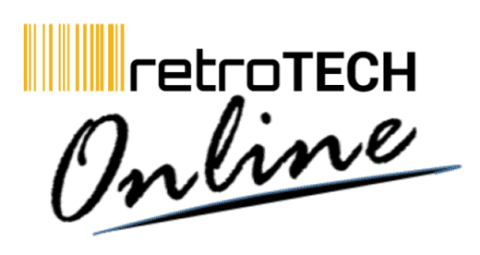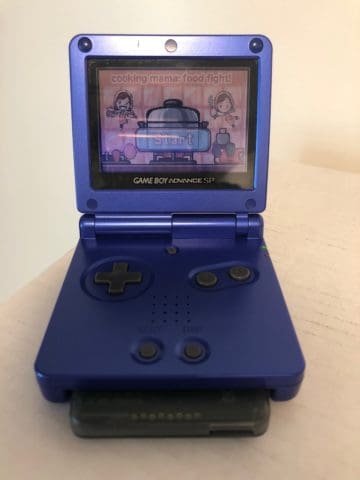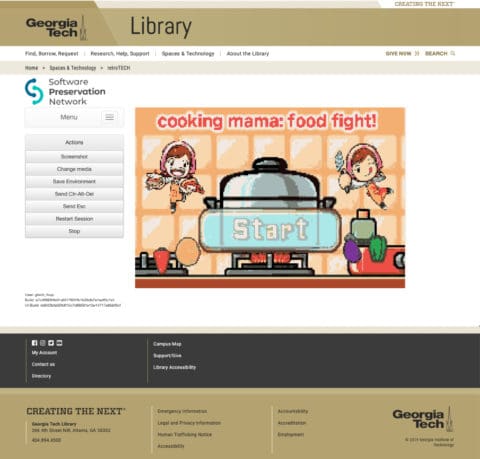retroTECH is a service and a lab space in the Georgia Tech Library. Our mission is to inspire a culture of long-term thinking, hands-on access to technological heritage, and individual agency over personal histories, archives, and data. It’s also a bit of a skunkworks, or an R&D arm for the Library’s Archives and Special Collections.
For several years, we’ve been engaged in research to identify how our potential user communities might interact with retroTECH, including how and why they’re interested in historical software and emulation. At Georgia Tech, dozens of students each semester use emulators to build programs for Game Boy Advance and Atari and faculty have been known to assign their students to use the Internet Archive’s Software Collection. The majority of respondents to our survey a few years back reported having used an emulator or virtual machine before. And when prompted to name a software program that made them feel nostalgic, one respondent said “Jeez…y’all are gonna get me all misty-eyed. America Online (that’s AOL for the youngsters).” Perhaps that was the seed of inspiration for our FCoP project, which we’ve nicknamed retroTECH Online.

We envision retroTECH Online as an extension of our lab, where community members can utilize emulated software from our collections for teaching and learning and explore the stories surrounding that software. Through oral history and documentation strategy, we’re exploring possibilities for using retroTECH Online to illuminate the people at the heart (or too often, the undocumented peripheries) of Georgia Tech’s technological pasts. Eventually, we hope to enable users to leave personal traces within the retroTECH Online world, building layers of use and reuse.
And this brings me to what I think is the real research question at the heart of our FCoP project: how might we transform a small physical lab space into a dynamic, broadly accessible landscape of memory-making? From watching the magical looks on people’s faces as they walk into our lab and from listening to them as, transported, they launch immediately into particular memories of their childhood or their parent’s, I know that software can be an instigator of multigenerational connection, and that emulation can create empathy.
For our retroTECH Online proof-of-concept, we’re working on preserving and providing access to a few different “software stories”–sets of emulation + oral history + documentation about the development of the software. Each title captures a use case for retroTECH — from celebrating student work and telling the story of software created by Georgia Tech community members to empowering access to architectural collections and providing users with the chance to compare original hardware environments vs. emulation.


One of the key challenges of bringing together the components of these software stories has been building bridges between our various data and metadata siloes. To present each software story as its own webpage, we decided to use a web framework independent of the main Georgia Tech Library website that allows for the dynamic generation of each page using data and metadata from multiple online sources. When the user opens a story page in their browser, associated data is sourced from the library’s repositories via APIs and presented as one cohesive page. Our aim is to integrate our independent application into the main Georgia Tech Library website to give the user a continuous experience and allow the software story pages to be discoverable through the site’s general search.
By participating in the FCoP cohort, we’ve benefited from opportunities to experiment with the EaaSI sandbox and to learn from project staff and collaborators like Amelia Acker, Brandon Butler, and Henry Zhu. And, perhaps most importantly of all, we’ve benefitted from regular reassurances that we do not face our challenges alone–that one of the most powerful assets of the cultural heritage community is its unique capacity for genuine collaboration across institutions and individuals.